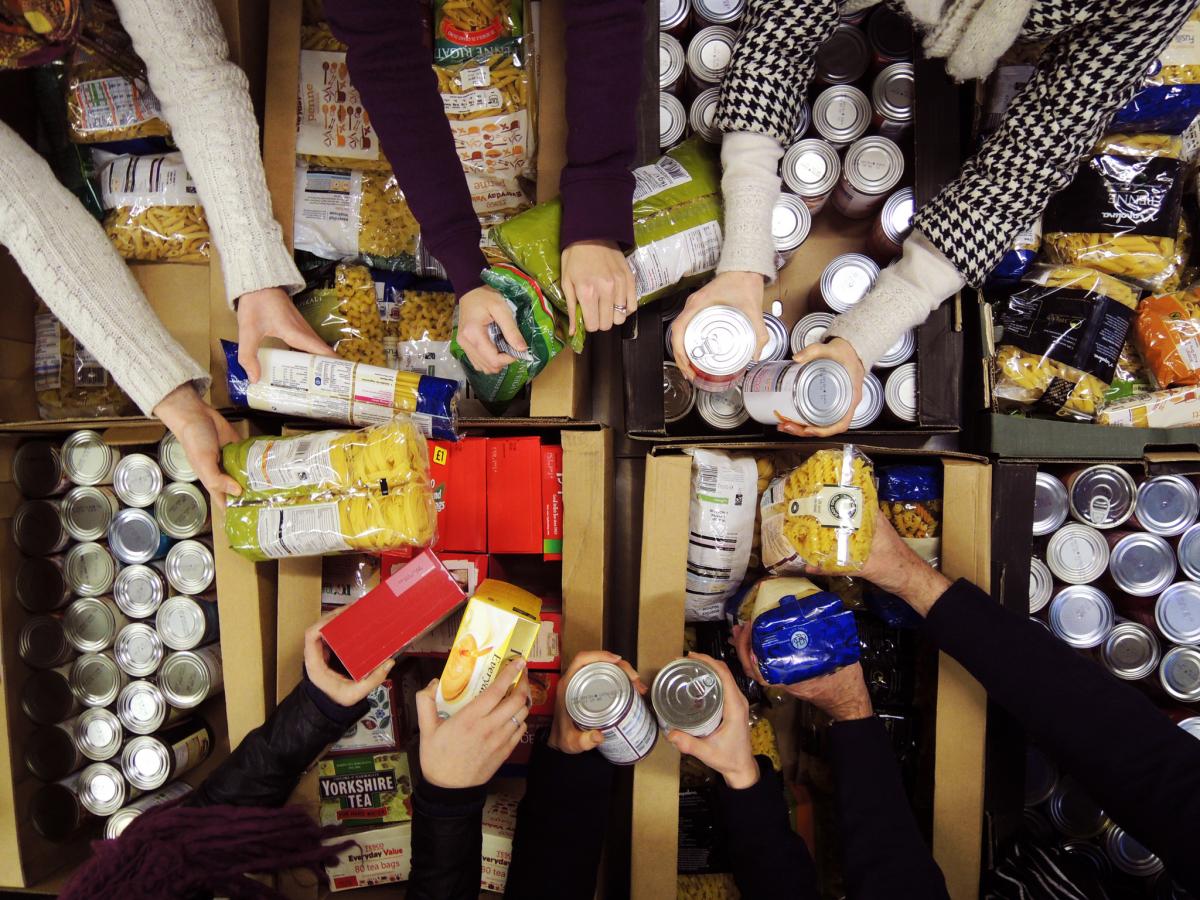Food banks have become a political football. Some say demand is driven by supply: if you build it, they will come. Others point to the rising cost of living, especially food price inflation, or benefit cuts as the key drivers of demand (or need). Yet, with the notable exception of a long-suppressed report for Defra, and regular figures on food bank use from the Trussell Trust, in-depth evidence on reasons why people use food banks has been in short supply. In a vacuum, commentators have felt at liberty to allow their preconceptions free reign.
Research published today by Child Poverty Action Group, the Church of England, Oxfam and the Trussell Trust is an attempt to take the politics out of the food banks debate. The research takes a robust, multi-method approach to increase our understanding of the reasons why food bank use has been on the rise: 40 in-depth interviews from seven food banks across the country; data from more than 900 clients at outlets in three of those areas regarding the reasons for their referral; and analysis of a caseload of 178 clients accessing a welfare advice service at one food bank.
The people we interviewed had invariably experienced a significant crisis in their life – job loss, bereavement, ill health, relationship breakdown. They had, as we all do when times are tough, drawn on their personal strengths and resources. Alongside that, they had sought support, to varying degrees, from others – friends, family, faith groups – and the social security system. They had ended up at the food bank as a last resort, using words like “shameful”, “embarrassing”, “unnatural” to describe the experience of being referred (while full of praise for the workers and volunteers who helped them when they were there).
So what led them there? People will always lose jobs, get ill, leave relationships, and experience bereavement. We have a social security system because our forebears acknowledged this, and strived to build a common safety net that would pick each of us up when bad stuff happens in our lives. In fact, what comes through loud and clear from our research is that, in the majority of cases, the immediate trigger for food bank referral was a failure in the safety net itself.
The problems with the benefit system were varied, but administrative delays and failures were a recurring theme. Around a third of food bank users from whom additional data was collected reported claiming a benefit which had not yet been decided – leaving them to struggle on little or sometimes no money. Between 20% and 30% had recently had their household’s benefits reduced or stopped because of a sanction. And, last year, 58% of appeals were successful (although only one in 50 claimants appeals) nationally.
A number of problems also emerged around disability benefits, including for the 9%-16% of users who had had their money stopped because of being found ‘fit to work’. There were also administrative and other difficulties related to ESA. Recent reforms had an effect, especially in certain places – with the ‘bedroom tax/’spare room subsidy’ affecting almost a fifth of food bank users in Durham, and the ‘benefit cap’, 12% of users in Epsom and Ewell – but did not dominate. A significant minority of the food bank users in the sample were in work – almost a fifth in the case of Epsom and Ewell – and between 15% and 35% had worked in the past six months. For many of these users, administrative issues with tax credits had proved substantial.
The safety net beneath the safety net – a system of crisis support, hardship payments and short-term benefit advances – too often failed to step into the breach. Low awareness of this support was a major problem: only a minority of those awaiting benefit decisions were aware they could apply for short-term advances; between a third and half were aware they could seek support from local welfare assistance schemes; and awareness of hardship payments among those who had been sanctioned varied from two-thirds in Durham to just a handful in Epsom and Ewell. Even where people were aware of such support, only a tiny minority were able successfully to access it.
For these largely administrative problems, four leading anti-poverty organisations have united to propose some straightforward solutions. We need to see improvements to the administration of social security benefits and better communication with applicants: many people were unaware they had been sanctioned until their payment didn’t arrive, and were unclear as to why. We also need improved awareness of the systems that are there to support people when things go wrong – like hardship payments and short-term benefit advances – and simplified claim processes for these. Funding for and provision of local welfare assistance schemes – the vital safety net below the safety net – must be protected. These are the kind of things that the government can fix – making significant improvements to the lives of people when they are at their most vulnerable – without the need for political point-scoring from anyone.
The rising food bank use over the last few years is to be lamented. Behind each statistic is a tale of struggle and hardship. For myriad reasons, the factors that leave people poor or otherwise vulnerable to crisis – low wages, real terms cuts in working age and children’s benefits, expensive housing – must be tackled over the long term. But with regard to food bank use, the biggest issues to be addressed are around the basic functioning of our social security system. Our research shows failures in this safety net are turning the kind of major life events we could all suffer at some point into an ongoing crisis. The good news is that these problems are resolvable. We urge the government to listen, and act.
 Alison Garnham is Chief Executive of Child Poverty Action Group
Alison Garnham is Chief Executive of Child Poverty Action Group





